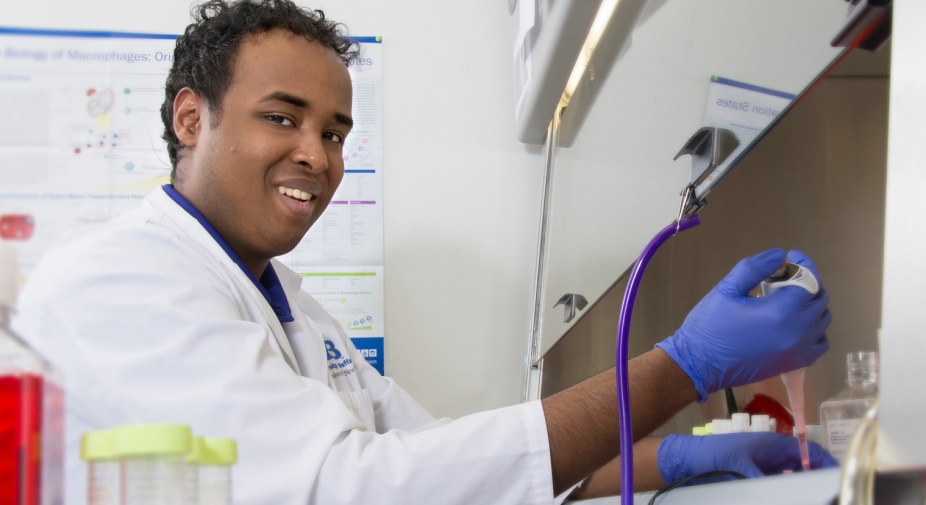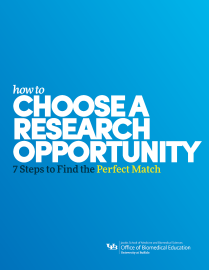Undergraduate Research

Where You Can Make a Discovery
Our research opportunities include summer or academic year fellowships sponsored by professional societies, volunteer positions in both basic and clinical sciences faculty labs, work in school-affiliated research centers, and independent study to develop honors theses.
Our independent study programs give you the chance to pursue your research interests at an advanced level. You can conduct independent research under a mentor’s guidance or collaborate on ongoing projects in a mentor’s laboratory. Some area agencies also offer experience-building volunteer opportunities.
Know you want to get involved with research? Great. You’re in the right place. There are a variety of ways to find research opportunities. Here are some of the most common ways students find these.
Contact Faculty
View our faculty profiles, where you can search by interest and department.
Ask faculty who have taught your science classes. They may also be able to suggest other faculty you can contact or area agencies with available opportunities.
Experiential Learning Network
The Experiential Learning Network is the University at Buffalo’s central resource for hands-on learning. The Project Portal and ELN Digital Badges are designed to help you find the best opportunities to build experience for your career and demonstrate your skills to future employers and graduate schools.
Subscribe to Listservs
Watch for announcements of research opportunities posted on the preprofessional health listserv and in “Honorable Mention,” the electronic newsletter sent to members of the University Honors College. Subscribe to the preprofessional health listserv by following UB prehealth advising’s instructions.
How to Choose a Research Opportunity Workbook
Is selecting a research opporutnity in your near future? Already feeling overwhelmed by the process?
Don't worry, we've compiled a workbook just for you! How to Choose a Research Opportunity: 7 Steps to Find the Perfect Match is available to download.
You'll learn what makes a good mentor, how to prioritize your wishlist, how to craft an introductory email, and so much more. Download your workbook, and get started today!
Biochemistry
The biochemistry major requires you to complete eight credit hours of laboratory research.
Biomedical Sciences
You may earn credit in the biomedical sciences major for independent study in another department or by taking Independent Research (MIC 498), Biomedical Sciences Research.
Neuroscience
You may earn credit in the neuroscience major by taking Undergraduate Research in Neuroscience (NRS 498 TUT).
Pharmacology and Toxicology
Conducting lab research as an undergraduate (PMY 498) lays the groundwork for a successful career in pharmacology and toxicology, neuroscience, and related fields in the biomedical sciences.
CLIMB UP for Summer Research
CLIMB UP for Summer Research is an interdisciplinary, 9-week-long summer research program for undergraduates to conduct research in the biomedical, behavioral, and health sciences. The CLIMB UP program provides research mentoring and career and professional development tailored to the goals of each of its divisions defined by research themes and sources of funding. Students explore graduate and career opportunities, discuss and present their research, network, and participate in social activities.
